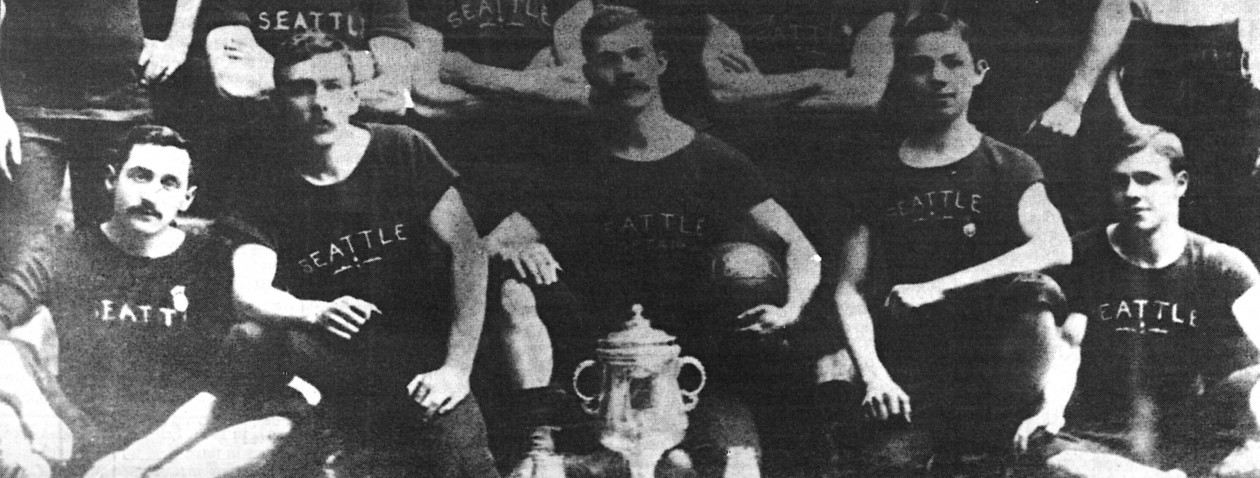So it was on Sunday. Just when it was seeming Dallas and Seattle were destined to finish the first leg of their series in a scoreless stalemate, the Sounders came unleashed, attacking in fury and soon finding themselves as top dog in a pairing with the top side in MLS this season.

Interim (Really? Still?) coach Brian Schmetzer pondered in his postgame presser whether he’d ever witnessed anything quite like it, the succession of blows by Valdez, Lodeiro and, again, Lodeiro during an 8-minute span early in the second half.
“No. I’d have to look at the stats,” said Schmetzer. “I’d have to Google search that. Over the years, we might have had some flurries like that, but right now I’m just thinking about tonight’s eight minutes.”
The question is not so much whether a Seattle side has ever erupted in such fashion. Of course they have–many times over 42 years. The question is whether such a surge can produce long-lasting impact, a carryover, if you will. But first a bit about outbursts.
Shortly after first signing with the NASL Sounders in 1980, Schmetzer, indeed, got an up-close view of Alan Hinton’s marvelously entertaining wrecking crew in action against Toronto. Ka-boom-boom-boom! Three goals in a span of 7 minutes, 20 seconds.
Later on, in the A-League era, the Sounders once scored three times in three minutes. Once in the Western Soccer League days, FC Seattle Storm blew open a tight game by scoring three times in 7:25–with a singular striker–Brent Goulet–scoring all three of the goals.

You get the idea: Goals can–and do–come in bunches. But rare are those occasions when it occurs as such a crucial stage of the season as happened at the CLink versus Dallas.
In 1977, en route to the Sounders’ first Soccer Bowl appearance, they twice turned playoff series upside down with a rapid, 1-2 punch. In both instances they were on the road, playing the opening game of a series.
At Minnesota, an 87th minute equalizer followed by a golden goal in the first minute of extra time gave Seattle a shock quarterfinal win, 2-1. A week later, in the semifinals at LA, it was 1-1 at the hour mark before two goals in four minutes sent George Best and the Aztecs reeling, 3-1. In both cases, the subsequent second leg in the Kingdome was almost a formality; Seattle won each, 1-0.

In 2002 Schmetzer was on the receiving end of barrage at the end of his rookie season as Sounders coach. Much like Dallas, all was going according to plan for Commissioner’s Cup holder Seattle late in the first leg at Vancouver. Scoreless going into the final 10 minutes, the series swiftly pivoted when the Whitecaps struck twice in the final six minutes. Back home at Memorial Stadium, the pressing Sounders were poleaxed by a pair of goals midway through the first half of the second leg. Game (and series) over.
Those are prime examples of one outburst begetting another. However, 1980 featured the most extreme swings of momentum in a series.
Fresh from a convincing elimination of defending champ Vancouver, the high-flying Sounders traveled to LA. They had won a record 25 games, including a sweep (6-1 combined score) of the Aztecs during the season. Inexplicably, in the series opener Seattle was dealt its worst defeat of the year, 3-0.
On the even of the second game, 48 hours later at home, Hinton sat his team down to watch and learn from the carnage. But before everyone settled in, he aborted that plan and turned up the lights after only 10 minutes.
Hinton coach could sense no one was in the mood for such a screening. “You know why you don’t want to watch it?” he remembers asking his players. “It’s because you’re embarrassed. It was a bad performance and we need to get it right.”
The next night, the Sounders wasted no time reasserting themselves. In a span of seven minutes and capped by Mark Peterson’s first of two goals, they led 3-0 before the half-hour mark. Peterson later made it 4-0.

To this day Hinton is incredulous of the NASL’s non-aggregate format. If settled by traditional terms, the Sounders would’ve advanced, 4-3, on aggregate. However this was a best-of-three series tied at 1-1, with advancement determined by the winner of a 30-minute “mini game.” As it turned out, Los Angeles prevailed in a tiebreaker shootout.
What does history teach us? More than anything, players are human, and just as one side can pound another into submission, there’s always the possibility of the once-vanquished scraping themselves off the canvas, delivering their own haymaker and becoming the victor.
That’s far from easy, as Sounders found in 2011 and ’12. Clearly, this blitz leaves Dallas on the edge. It was a near-prefect Sounders performance, a job well done. But still, a job unfinished.
